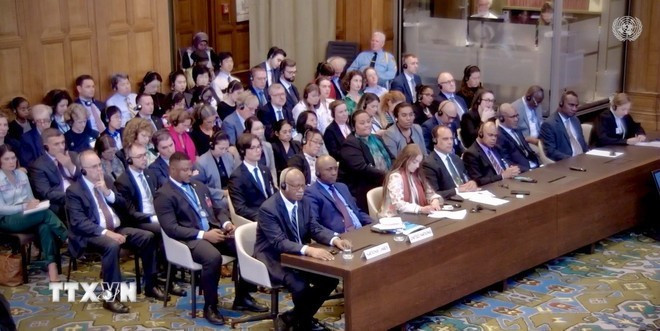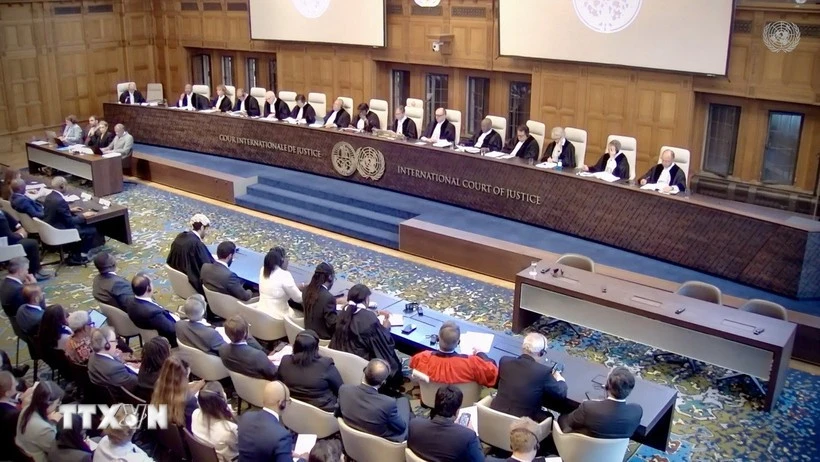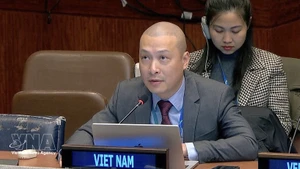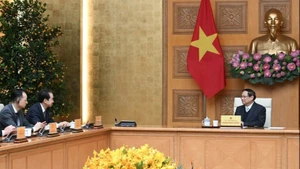This marked the first time the UN’s principal judicial organ has released a comprehensive interpretation of states’ duties concerning climate change. It is the culmination of a two-year-long process that has seen record-breaking participation by States and international and regional organisations and strong engagement by legal scholars and civil society representatives from around the world.
As a key member of the core group of 18 countries, initiated by Vanuatu, Viet Nam engaged in advocating for the UN General Assembly’s Resolution N.77/276, requesting for the ICJ’s advisory opinion. Following the resolution's adoption, Viet Nam fully participated in all procedural steps for the first time, from submitting written proposals to presenting directly at the court’s hearings.
Viet Nam presided over various conferences and discussions to support Asia-Pacific developing nations to prepare their legal inputs, thereby promoting their collective voice in this crucial legal process.
In its statements and written briefs, Viet Nam consistently respected international law, underscoring that all nations share a collective responsibility to prevent and mitigate climate change in accordance with related international treaties. It called for recognition of the rights of the most climate-vulnerable countries, accounting for historical emissions and national capacities, ensuring adherence to principles of equity and common but differentiated responsibilities in climate response.
Viet Nam’s engagement this legal process demonstrates its increasingly constructive and responsible role at multilateral legal forums and in strengthening the rule of law globally.

The ICJ’s advisory function in this case stems from the UN General Assembly’s request for clarification on the scope of states' obligations to protect the climate system for both present and future generations and the legal consequences when those obligations are breached.
The advisory, endorsed by all 15 ICJ judges, affirmed that states are legally bound to protect the climate and environment not only under major climate treaties such as the UN Framework Convention on Climate Change (UNFCCC), the Kyoto Protocol, and the Paris Agreement but also through customary international law, human rights law, the law of the sea, and other legal instruments.
These obligations encompass reducing greenhouse gas emissions, adapting to climate change, protecting marine environment, sharing technology, providing financial support, and engaging in good faith cooperation.
Besides, the court confirmed that failure to implement or inadequately implement climate change obligations may constitute violations of international law, resulting in state responsibility to end violations, ensure non-repetition, and provide compensation for affected countries where clear causal links exist.
















